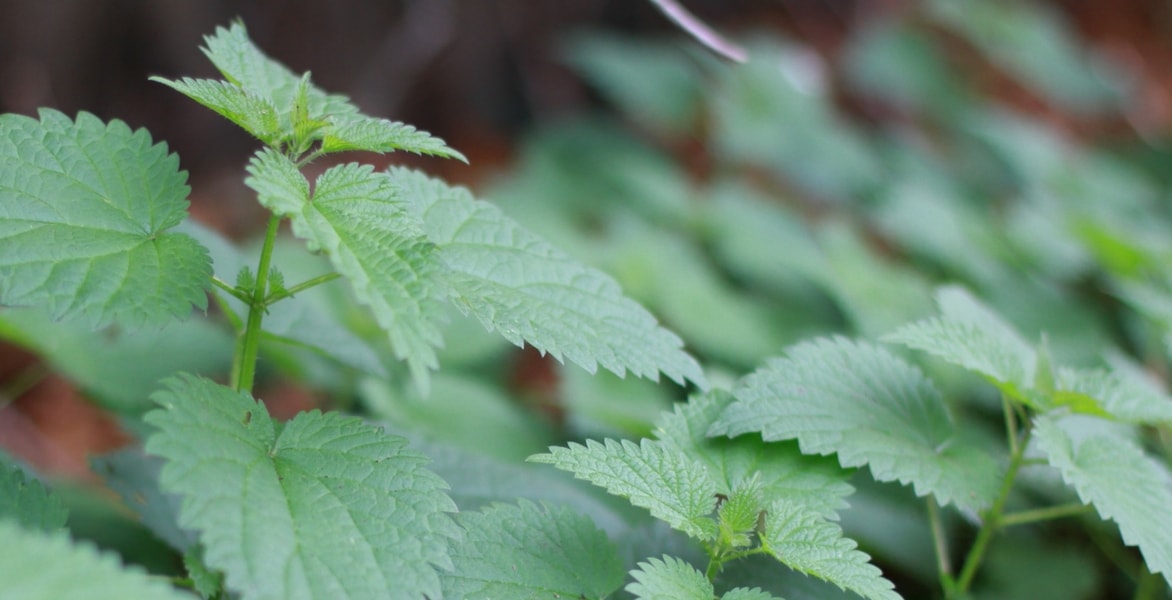
Nettle: a plant with many benefits
in the vegetable garden and in the garden
Contents
Those who touch it get stung! The nettle, known as “stinging nettle” or white nettle (Urtica dioïca), often leaves a vivid memory in people’s minds. Who hasn’t brushed a little too closely against its urticating needles?
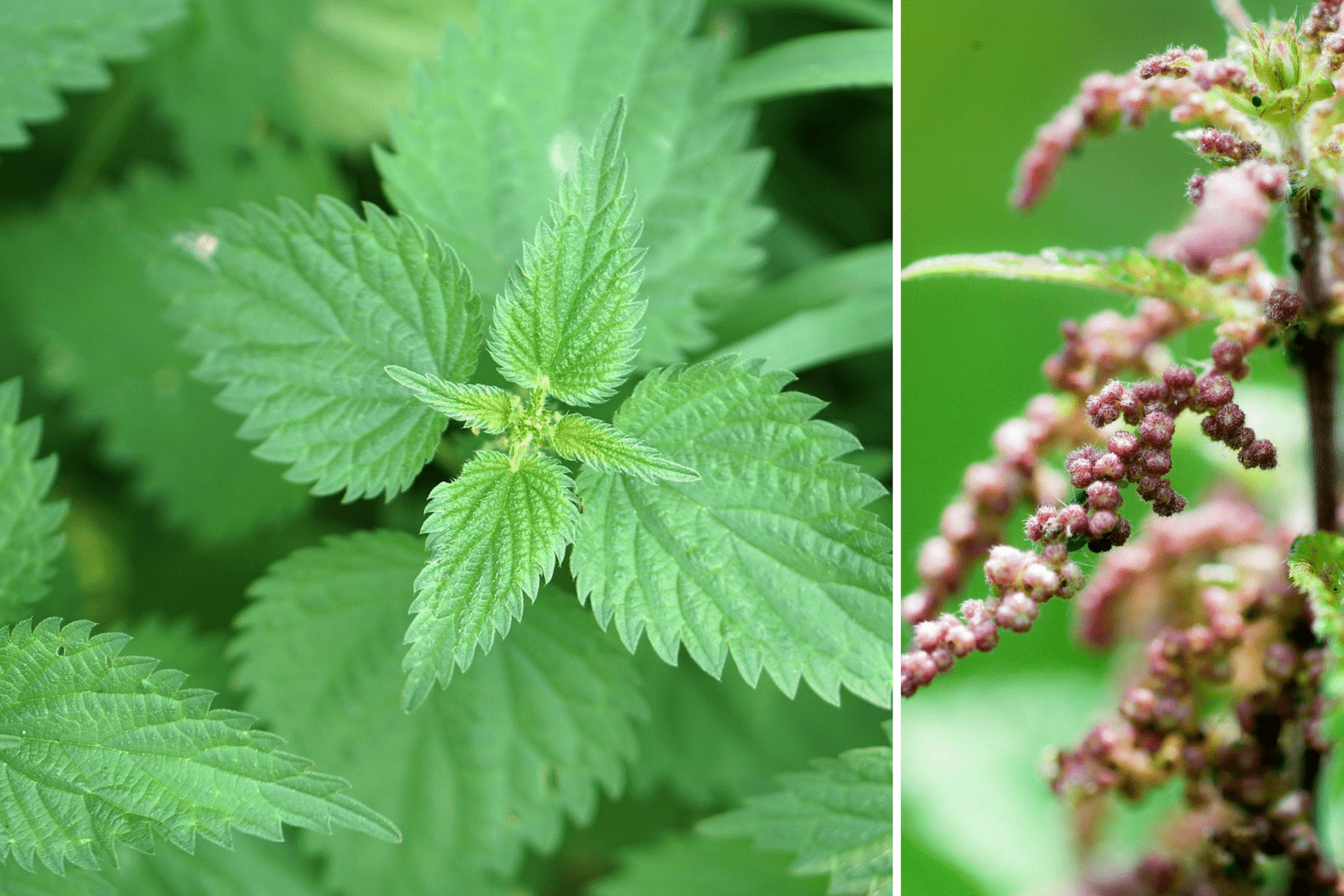
Foliage and inflorescence of the nettle.
Hated and cursed, this wild plant with multiple virtues is often relegated to the status of a pariah as it disrupts the perfection of a garden. However, more and more gardeners, keen to cultivate a 100% organic vegetable garden, see it as a valuable aid and use it particularly for growing tomatoes.
Used in infusions, decoctions, manure, and other green potions, far from any witchcraft, nettle has become the champion of plant preparations!
Nettle manure, a biostimulant, fertiliser, repellent against pests, especially aphids, promoting the growth of plants, elicitor or stimulating the immune defenses of plants, and even weeding… is renowned for its many qualities.
Dried, sometimes ground into powder or fresh, nettle is also used in herbal tea to relieve joint pain. In cooking, it lends itself to various preparations.
What are the benefits of nettle and its renowned manure? Let’s take stock!
Nettle manure, the magic potion of the garden
The nettle manure, which would be more accurately called fermented nettle extract, is obtained through aerobic fermentation of its leaves and stems, lasting from one to three weeks.
This fermentation allows for the release of the active principles of the plants. This manure, often described as a mixture with a terrible smell, is, however, when made correctly, practically odourless, clear, and easy to store.
Nettle is renowned for strengthening, stimulating the microbial flora of the soil, promoting the ripening of compost, and improving chlorophyll function.
That is why its manure, a true elixir, is used as a preventive treatment against diseases as well as a natural fertiliser. It allows for the avoidance of unnecessary and harmful chemical products for the environment… and it is free!
Nothing is easier than making a fermentation since it simply requires soaking plants in water for several days. The only risk: failing the operation and going from fermentation to putrefaction. This results in a brownish liquid, ineffective and particularly foul-smelling. A fermented extract collected at the right stage emits an acceptable odour. Rest assured, the recipe is very simple… And we explain everything to you, step by step, in this tutorial: “How to make your nettle manure?“
If the prospect of making a stinky juice puts you off or if you do not have the necessary time, know that you can also buy it! It is possible to obtain ready-made nettle manure to dilute in water. This will simplify life for urban gardeners who may face difficulties in sourcing nettles, as well as for those with small gardens, which only require small quantities.
Read also
Nettle manure: how to make it?Uses of nettle in manure
Although nettle manure has not yet scientifically proven its benefits on a large scale, it is one of the favourite plants of organic gardeners who are committed to growing their vegetables naturally, without chemical fertilisers or pesticidal products. In both the vegetable garden and the ornamental garden, it is used as:
-
Fertiliser, nutrient
Due to its high nitrogen concentration, nettle manure is often regarded as a natural fertiliser that stimulates plant growth and promotes the development of stems, leaves, and roots.
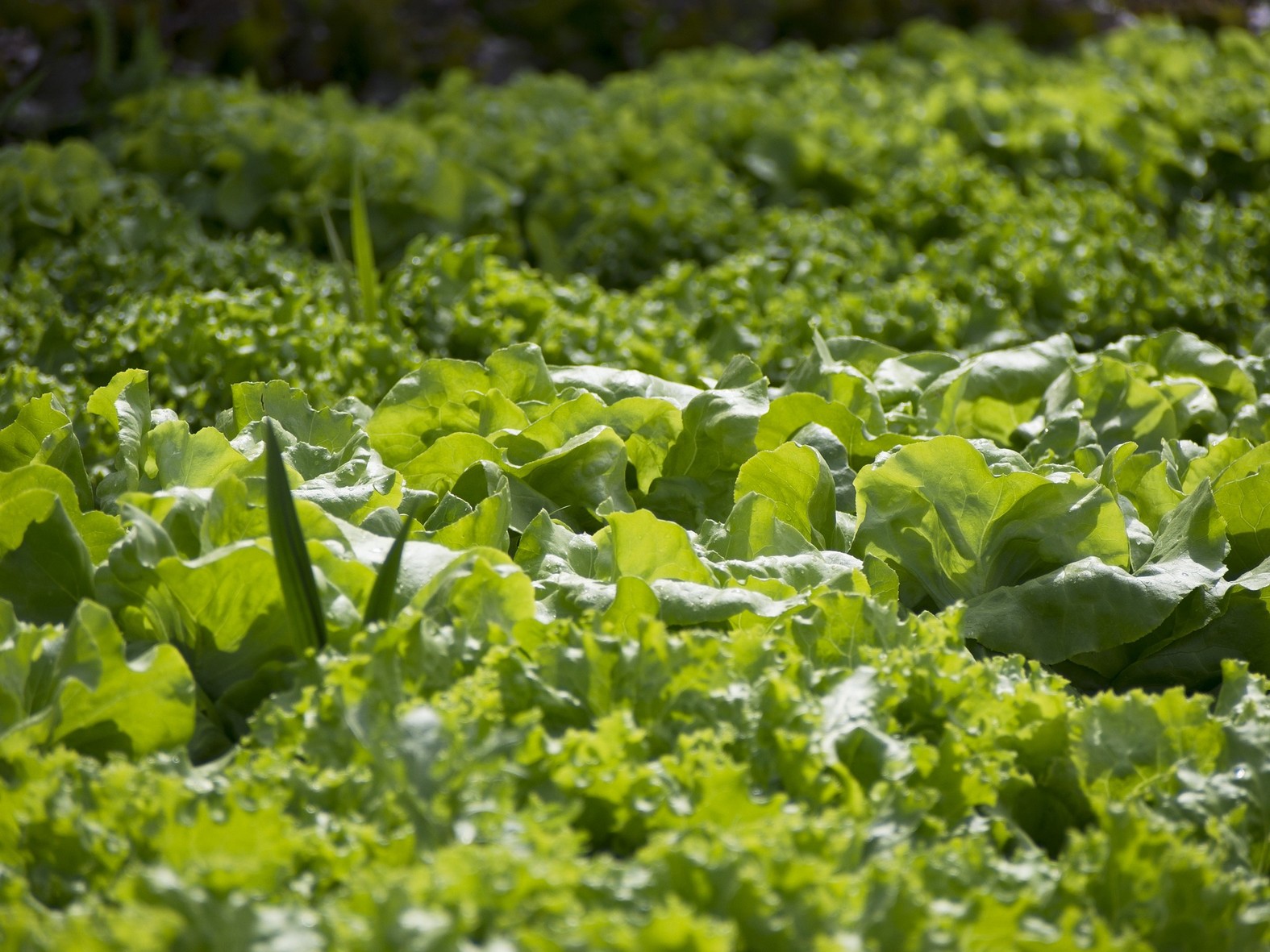
In fact, it is worth noting that the term natural fertiliser is not entirely appropriate since its levels of nitrogen, phosphorus, and potassium may not be sufficient for it to be classified as such. Nevertheless, nettle manure is still effective, but rather as a phyto-stimulant.
Indeed, many gardeners observe a boosted growth leading to earlier plant development, particularly in leafy vegetables but also in tomato plants, which would flower and bear fruit earlier, which is particularly interesting in regions with short summers.
It should also be noted that nitrogen promotes foliage at the expense of flowering. This is why we recommend using nettle manure for watering only during the first weeks following planting to encourage vegetation. After that, if necessary, switch to using comfrey manure, which will rather encourage fruiting.
-
Repellent against pests, including aphids
Plant extracts are not true pesticides as they do not decimate pests. They simply confuse the markers of certain insects, limit invasions by hindering their mobility, reproductive capacity, and feeding. Plant extracts contain molecules, some of which encourage the plant to produce substances that make it unpalatable. Others may contain molecules that act on the pest’s metabolism. Prepare a maceration of fresh leaves for 12 hours, using 1 kg for 10 litres of water. Apply diluted to 10%, meaning mixing 1 litre of manure with a watering can of 10 litres of water, preferably rainwater.
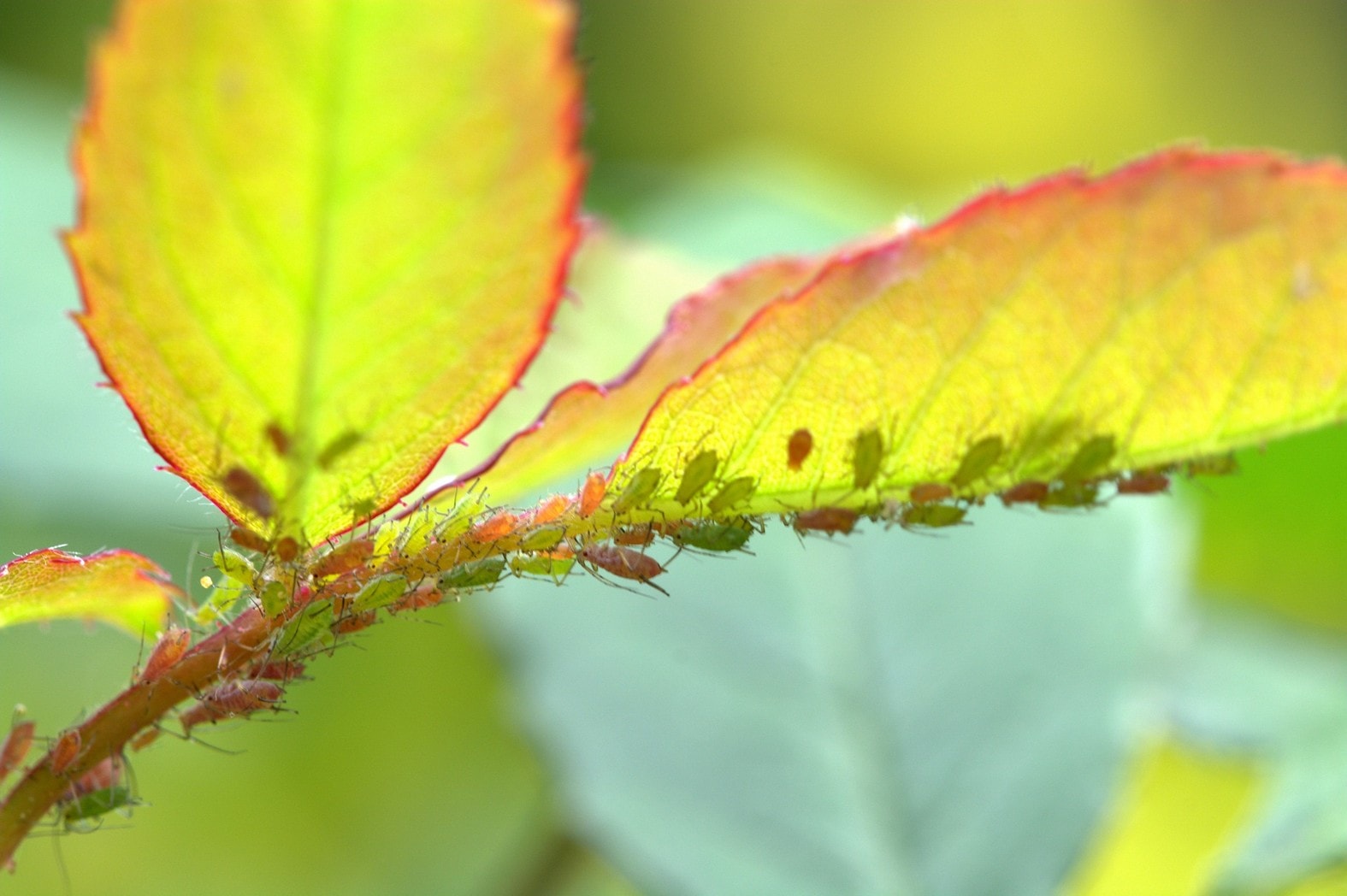
Nettle manure helps combat aphid colonies
-
Stimulant for plants’ natural defences
Plant extracts trigger the immune defences of plants, stimulating and improving mineral absorption. However, always ask yourself beforehand whether intervention is necessary. If a plant remains healthy, why stimulate its natural defences? Does it really need it?
In a naturally cultivated vegetable garden, where biodiversity is preserved, where pesticides and chemical fertilisers are banned, and where the soil is maintained… In short, under good conditions, plants are rarely sick. And if a pest attack occurs, beneficial insects limit the damage, as do insect nets, for example. Therefore, there is no need to treat, even with a plant extract, if it is not necessary. However, if after a particular event (hailstorm, heatwave, etc.), the plants are weakened, you can spray diluted fermented nettle extract at 20% (1 litre of manure for 5 litres of water) to help them react quickly to the aggression.
-
Anti-iron chlorosis
Chlorosis causes discolouration of the foliage. This phenomenon does not stem from a lack of iron in the soil but from a blockage in its assimilation, often caused by an excess of lime. Nettle contains a good amount of iron. Spraying diluted manure at 5% or 10% for watering could help eliminate symptoms, thanks to bacteria that make iron assimilable by plants, although it does not solve the underlying problem. It is essential to carry out foundational work to keep the soil as alive as possible, particularly by regularly enriching it with organic matter.
-
Compost activator
Vegetable waste after filtration and even leftover manure (even unfiltered) can be added to the compost heap. Manure is known to activate and accelerate the decomposition of compost waste.
-
Weed killer
Pure nettle manure is considered a good natural weed killer. However, used in this way, it is also polluting. Indeed, its high nitrogen content leads to an accumulation of nitrates (resulting from the nitrification of nitrogen) in the soil, causing a significant toxicity for fauna and flora. This inevitably harms biodiversity. Let us remember that products, even natural ones, should not be used indiscriminately!
Other uses of nettle
-
Nettle, a pillar of biodiversity
Often disliked and considered a “weed”, nettle is actually valuable in gardens, especially those with an ecological focus. Indeed, it is a host plant for a multitude of insects, including several species of caterpillars such as the Peacock and the Small Tortoiseshell.
Therefore, always make sure to leave a small wild corner for nettles in your garden: the wildlife will thank you!
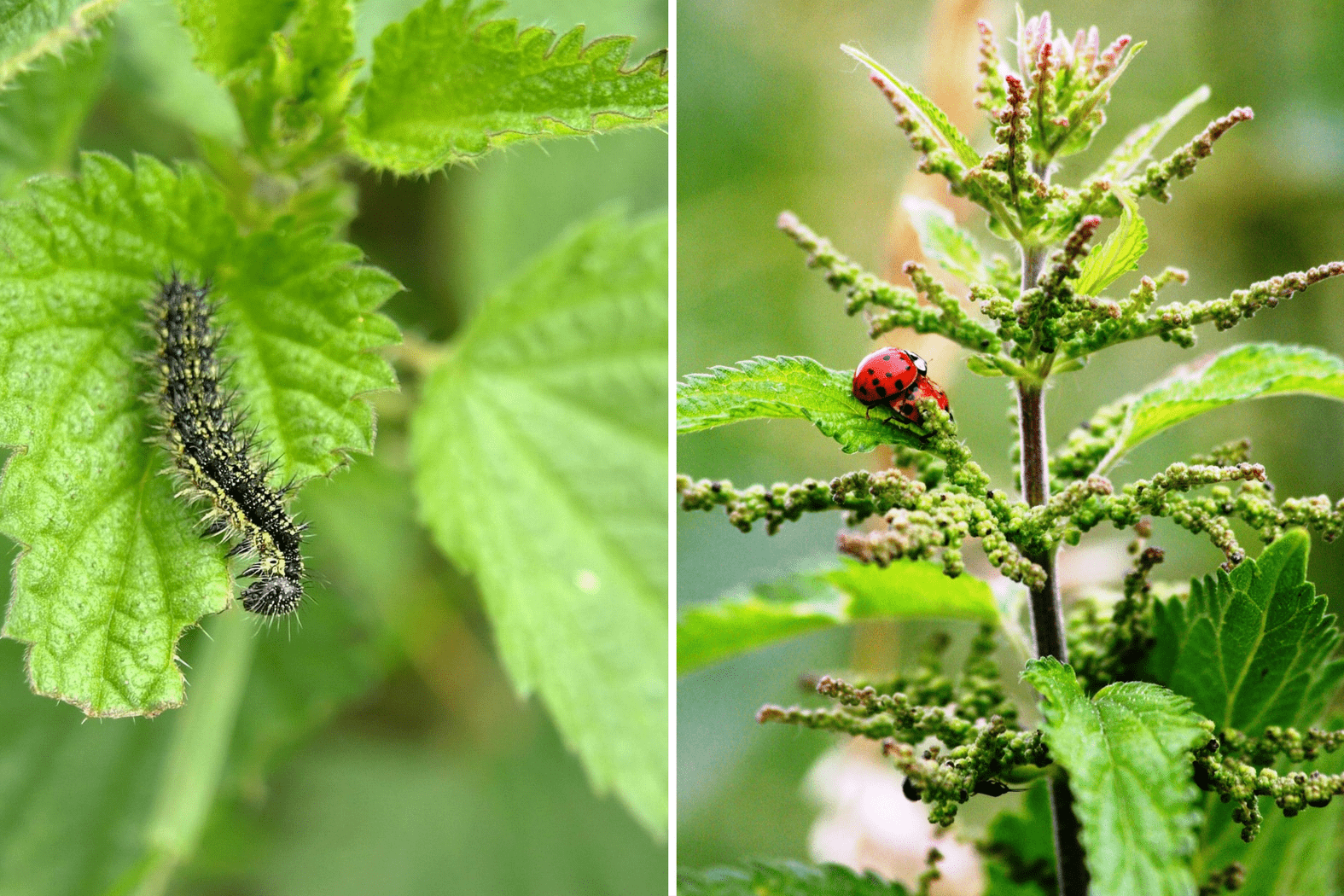
On the left: Caterpillar of the Small Tortoiseshell butterfly (Aglais urticae) – On the right: mating season for ladybirds.
-
Nettle, a medicinal plant, also worth trying in the kitchen
Delicious in soups, nettle is a powerhouse of vitamins and minerals. It is also used in diuretic and anti-bacterium herbal teas and even to stimulate hair growth!
In the kitchen, it enhances many dishes such as salads, quiches, cakes, cookies, and can even be enjoyed in pesto!
To learn more :
- Our tutorial: Make your own nettle powder
- Subscribe!
- Contents































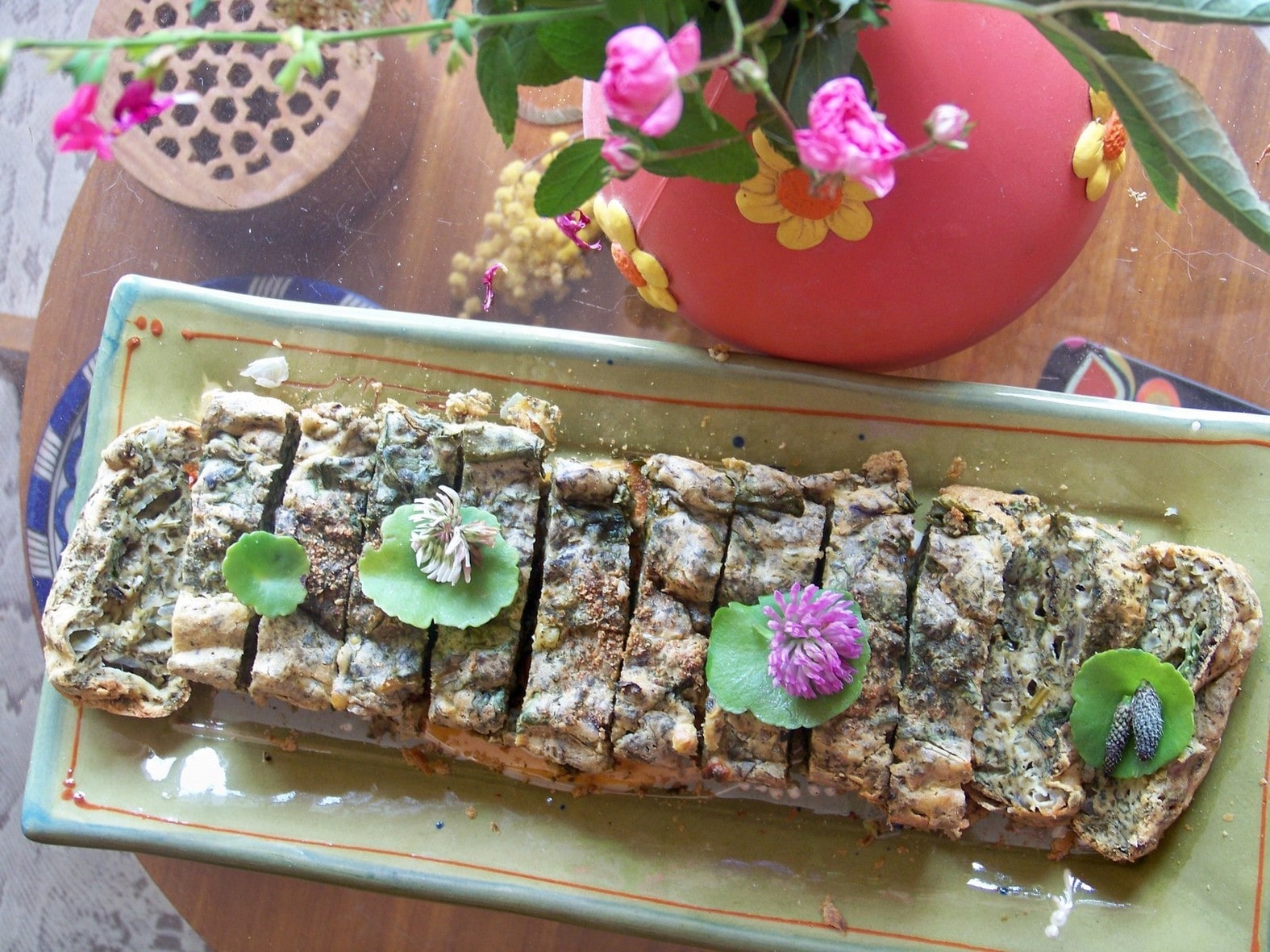
Comments